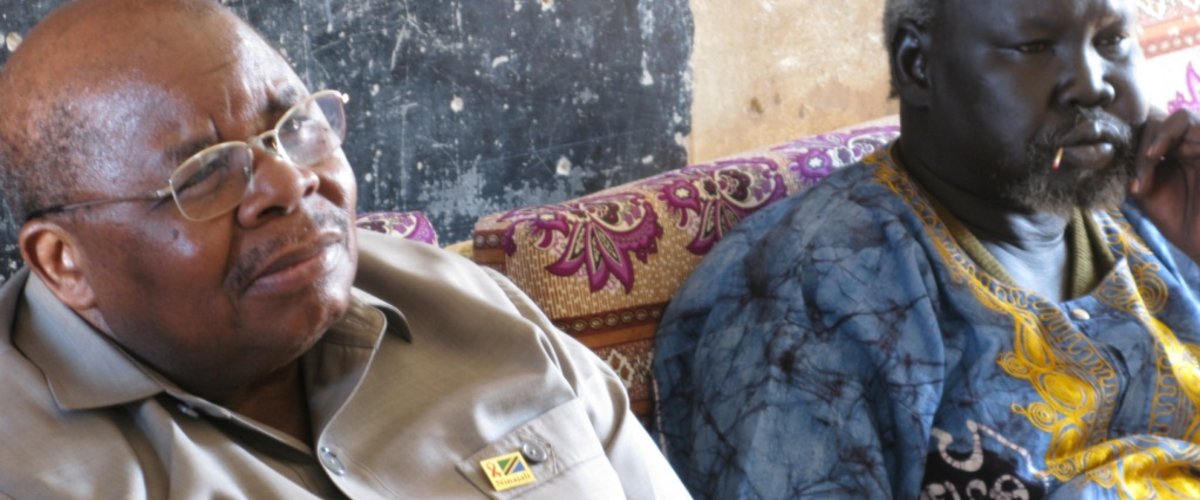Sultans raise post-referendum concerns to UNSG panel
13 January, 2011 – On the fifth day of polling for the Southern Sudan referendum, local tribal leaders in River Nile State assured the UN Secretary-General's monitoring panel that the process was proceeding fairly, but expressed concerns about post-referendum arrangements.
Visiting the two referendum polling centres of Shendi, the independent referendum panel was informed that about 67 per cent of registered voters had already cast their ballots in a smooth and transparent process when voting closed yesterday.
Polling Centre Chairman Tagassir Mohammed said that some 1,400 people had cast their ballots by 13 January, out of 2,190 voters registered across the state. The success of the process was due to coordinated work, well-trained polling staff and cooperation with local media, he noted.
Addressing a dozen sultans or Southern Sudanese tribal leaders at polling centre number 42 in Shendi, Panel Chairman Benjamin Mkapa said the purpose of the panel's visit was to obtain information on whether "the people of Southern Sudan have been able to express their free will in a free and transparent manner" during the referendum process.
The sultans, most of whom have been living in River Nile State for some 30-40 years, confirmed that referendum polling was being conducted in a peaceful and smooth way without obstacles or intimidation.
However, some of them expressed concern about post-referendum arrangements, especially concerning religious freedom and property rights.
Several sultans – who originally hailed from various states of Southern Sudan, including the greater Equatorias, Bahr El-Ghazal and Upper Nile – mentioned that religious freedom existed in North Sudan, although they did not receive funding for their church.
Referring to a recent speech President Omar Al-Bashir gave at the end of December 2010 stating that Sharia Law would be fully enforced in Sudan in case of the south's secession, sultans raised concern about property of non-Muslim Southern Sudanese who remained in the country's north.
In a message to Sudanese political leaders, James Siko, who has been living in River Nile State for the past 42 years, noted that the secession of Southern Sudan should happen only on the political level, but should not affect the relationship between people of North and Southern Sudan.
"I have taken note of your concerns," Chairman Mkapa said, adding that "in our conversations with government leaders in the north and south, we have stressed the importance of protection of life and property of southerners in the north and northerners in the south."
The chairman commended the parties to the country's 2005 peace agreement for the smooth conduct of the polling process and expressed his hope for its successful conclusion as well as a peaceful acceptance of the results.
On its fourth visit to the country, which began the first week of January, the UN Secretary-General's Panel on the Referenda for the Sudan visited various locations, including Juba, Bor, Torit and Nyala. Panel members met with referendum polling staff as well as UN and government officials to monitor whether polling was being conducted in a free and fair manner.
 UN
UN United Nations Peacekeeping
United Nations Peacekeeping





